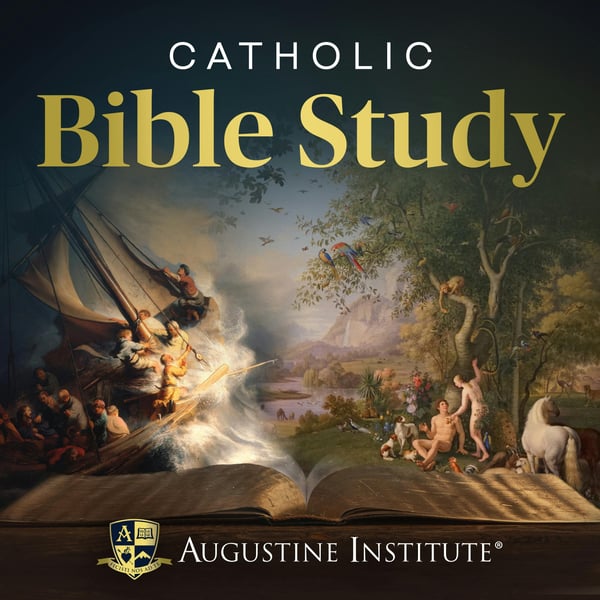The Season of Advent: Advent through the Centuries
Catholic Bible Study
Augustine Institute
4.7 • 629 Ratings
🗓️ 12 December 2024
⏱️ 31 minutes
🧾️ Download transcript
Summary
Transcript
Click on a timestamp to play from that location
| 0:00.0 | Hi, I'm Dr. Brownwin-McChea. I'm a visiting assistant professor of history with the Augustine Institute. |
| 0:11.0 | And in my time with you here, I will tell you some of the history of the Catholic Church's observance of the sacred season of Advent. |
| 0:18.0 | So I'll clarify some ways in which that season in its primary liturgical |
| 0:22.7 | form and in terms of some customary cultural things part of it today emerged and developed over |
| 0:28.8 | the centuries. Before I get into all that, let's start with some basic definitions of the word Advent. |
| 0:35.1 | In Webster's Dictionary, Advent is defined in three ways. The first is what I'll |
| 0:39.8 | be considering with you today, that is, the period beginning four Sundays before Christmas, |
| 0:45.0 | and observed by some Christians as a season of prayer and fasting. The second is, as some might put it, |
| 0:51.8 | the reason for the season, or rather the two things the Christian season of Advent is focused on, the coming of Christ at the incarnation, and his second coming. |
| 1:01.5 | Advent in the third sense is not capitalized and means simply, without religious connotations, a coming into being or use. |
| 1:10.4 | Now, from a certain vantage point, |
| 1:11.6 | the history of Advent in the Catholic Church |
| 1:13.6 | begins with that third non-Christian definition. |
| 1:16.6 | The etymological root of Advent is the Latin word Adventus, |
| 1:20.6 | meaning an arrival or an appearance. |
| 1:24.6 | In the ancient Roman Empire, |
| 1:26.6 | around the time that Christ was born in Bethlehem, pagan Latin speakers would use the word Adventus for occasions when they believed that one of their gods, such as the Roman gods Jupiter or Diana, came to visit a temple built in his or her honor. Public festival days and special rights would then be celebrated. |
| 1:46.9 | At the same time, pagan Romans and other Latin speakers would use the term Adventus for ceremonial |
| 1:53.1 | visits by kings and emperors to particular cities or provinces, for example, after |
| 1:58.9 | liberating it from an enemy. |
| 2:02.3 | These classical pagan senses of the word Adventus help us understand why the first great |
| 2:07.7 | translator of the Bible into Latin, Saint Jerome, used that word when translating Greek |
... |
Please login to see the full transcript.
Disclaimer: The podcast and artwork embedded on this page are from Augustine Institute, and are the property of its owner and not affiliated with or endorsed by Tapesearch.
Generated transcripts are the property of Augustine Institute and are distributed freely under the Fair Use doctrine. Transcripts generated by Tapesearch are not guaranteed to be accurate.
Copyright © Tapesearch 2025.

